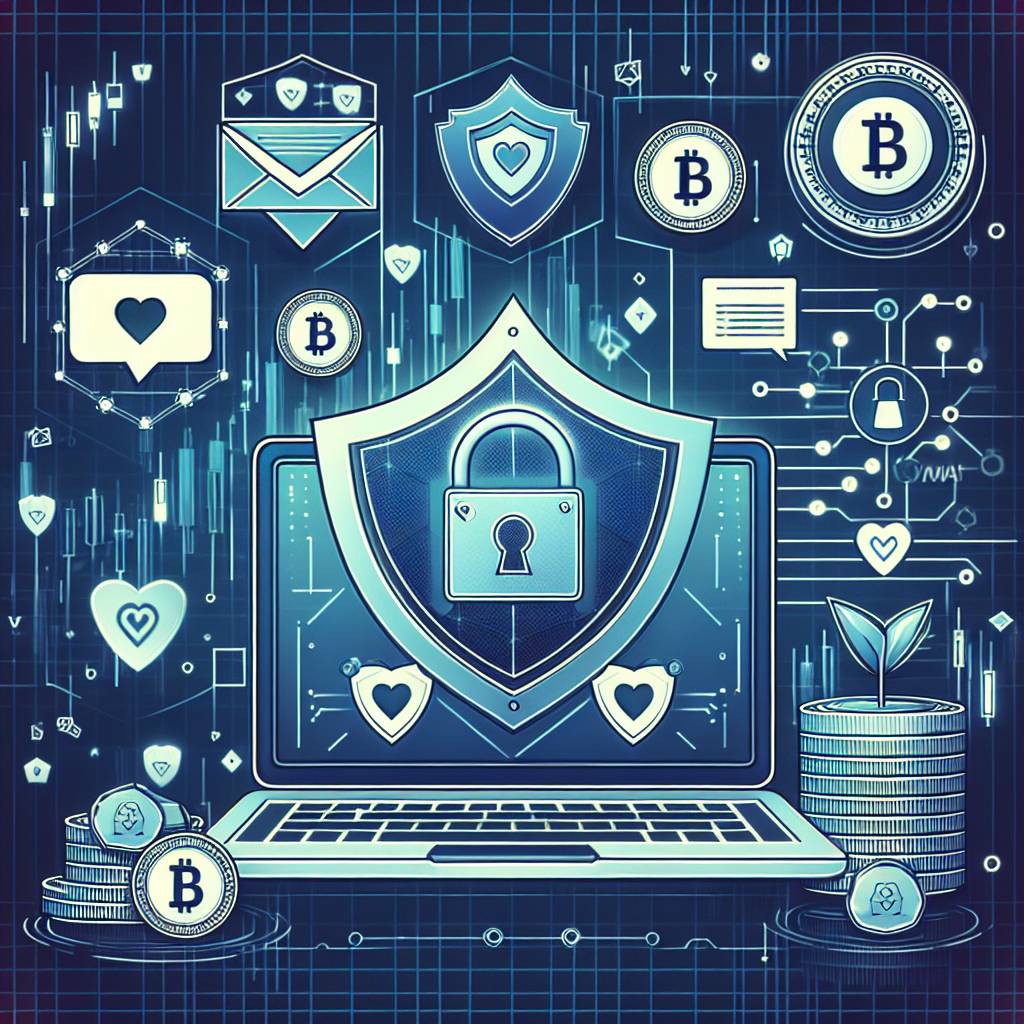How to protect my digital assets from being hacked in the world of cryptocurrency?
In the world of cryptocurrency, where digital assets are vulnerable to hacking, what measures can I take to protect my assets from being compromised? I want to ensure the safety and security of my investments.

3 answers
- One of the most important steps to protect your digital assets in the world of cryptocurrency is to use a secure wallet. Choose a reputable wallet provider that offers strong encryption and multi-factor authentication. Additionally, regularly update your wallet software and enable automatic security updates to stay protected against potential vulnerabilities. Remember to store your wallet's recovery phrase in a safe place and never share it with anyone. Another crucial aspect is to be cautious of phishing attempts. Be wary of suspicious emails, links, and messages that ask for your personal information or login credentials. Always verify the authenticity of the source before providing any sensitive data. Furthermore, diversify your assets across different wallets and exchanges. This reduces the risk of losing all your funds in case one wallet or exchange gets hacked. Research and choose reputable exchanges with a strong track record of security and user protection. Lastly, educate yourself about common hacking techniques and stay updated on the latest security practices. Regularly review your accounts, enable two-factor authentication whenever possible, and use strong, unique passwords for each platform. Remember, protecting your digital assets requires constant vigilance and proactive measures.
 Dec 26, 2021 · 3 years ago
Dec 26, 2021 · 3 years ago - Hey there! When it comes to safeguarding your digital assets in the cryptocurrency world, it's all about staying one step ahead of the hackers. Here are a few tips to keep your investments secure: 1. Keep your software up to date: Regularly update your wallet software, operating system, and antivirus programs. This ensures that you have the latest security patches and protection against potential vulnerabilities. 2. Use hardware wallets: Consider using a hardware wallet, like Ledger or Trezor, to store your cryptocurrencies. These wallets keep your private keys offline, making them less susceptible to hacking attempts. 3. Be cautious of phishing attempts: Hackers often use phishing emails, fake websites, and social engineering techniques to trick users into revealing their login credentials. Always double-check the URLs, enable two-factor authentication, and never share your private keys or recovery phrases with anyone. 4. Diversify your holdings: Instead of keeping all your digital assets in one place, diversify your holdings across multiple wallets and exchanges. This minimizes the risk of losing everything if one platform is compromised. 5. Educate yourself: Stay informed about the latest security practices and common hacking techniques. Follow reputable sources, join cryptocurrency communities, and learn from experienced investors. Remember, protecting your digital assets is an ongoing process. Stay vigilant and take proactive steps to ensure the safety of your investments!
 Dec 26, 2021 · 3 years ago
Dec 26, 2021 · 3 years ago - At BYDFi, we understand the importance of protecting your digital assets in the cryptocurrency world. Here are some key measures you can take: 1. Choose a secure wallet: Opt for a wallet that offers robust security features, such as strong encryption and multi-factor authentication. Look for wallets that have undergone third-party security audits. 2. Enable two-factor authentication (2FA): 2FA adds an extra layer of security to your accounts. Use an authenticator app like Google Authenticator or Authy to generate unique verification codes. 3. Regularly update your software: Keep your wallet software, operating system, and antivirus programs up to date. Updates often include security patches that protect against known vulnerabilities. 4. Be cautious of phishing attempts: Be skeptical of unsolicited emails, messages, or links that ask for your personal information or login credentials. Always verify the authenticity of the source before providing any sensitive data. 5. Use strong, unique passwords: Avoid using common or easily guessable passwords. Use a password manager to generate and store complex passwords for each platform. Remember, protecting your digital assets requires a proactive approach. Stay informed, follow best practices, and choose reputable platforms to minimize the risk of hacking.
 Dec 26, 2021 · 3 years ago
Dec 26, 2021 · 3 years ago
Related Tags
Hot Questions
- 77
How can I minimize my tax liability when dealing with cryptocurrencies?
- 65
What are the best practices for reporting cryptocurrency on my taxes?
- 60
Are there any special tax rules for crypto investors?
- 58
How does cryptocurrency affect my tax return?
- 53
How can I buy Bitcoin with a credit card?
- 28
How can I protect my digital assets from hackers?
- 21
What are the tax implications of using cryptocurrency?
- 6
What are the advantages of using cryptocurrency for online transactions?
